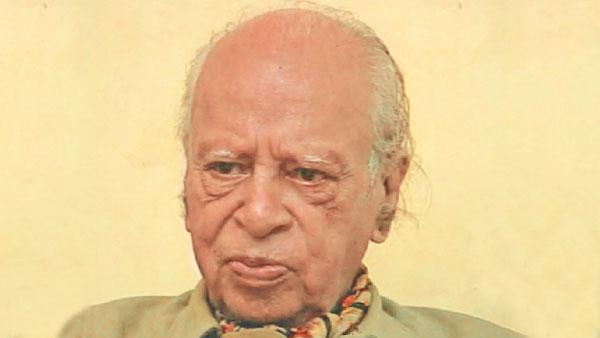
Mulk Raj Anand is one of the best known Indian writers of the 20th century who wielded his pen against social injustice. He also goes down history as a writer who brought the Hindu heartland alive for English readers spread throughout the world.
Anand shot himself to fame with his novel ‘Coolie’ which was later adapted into a major film under the same title. He was one of the three writers who wrote in English outside Bengal. He was born in Peshawar on December 12, 1905. He was educated at the University of punjab and Cambridge University, London. He majored in Literature at the Punjab University and earned his Doctorate in Philosophy from the Cambridge University in 1929. Very few Indians studied at the University of Cambridge at the time.
Conviction
While studying in England, Anand was involved in left wing politics as well as the Indian independence movement. He supported the coal miners’ strike in 1926 and the general strike that followed. Young Anand joined the Marxist Study Circle of Alan Hutt. He regularly addressed meetings of Krishna Menon’s India League. He met a number of British intellectuals such as, Bertrand Russell, A.N. Brailsford, and Michael Foot.
He also wrote numerous essays on Marxism, Fascism, the Spanish Civil War, and the Indian Independence struggle. After turning down a lucrative post at the University of Cambridge he agreed to teach Literature and Philosophy at the London County Council’s adult education schools and the Workers’ Educational Association.
The range of political activities was matched by his conviction of the inextricability of politics and literature. This is reflected in many of his novels which depict the lives of the downtrodden people in India. While engaged in political activities Anand immersed himself in London’s literary scene.
He had the privilege of associating with eminent British scholars such as T.S. Eliot, Stephen Spender and Bonamy Dobree. He regularly contributed to the ‘New Statesman’, and ‘Life and Letters Today.’ He had the rare opportunity of working as editor for Leonard and Virginia Woolf at the Hogarth Press, and for T.S. Eliot at ‘Criterion.’ His non-fiction writings include essays on subjects ranging from art to cookery.
During World War II Anand broadcast numerous radio programmes for the BBC Eastern Service. He worked with George Orwell and the Caribbean poet Una Marson. He married Kathleen Van Gelder, a communist, in 1938. Although they had a daughter, the marriage did not last. He then returned to India and founded the art magazine ‘Marg.’ He was also appointed Tagore Professor of Literature and Fine Art.
After his postgraduate studies Anand joined the League of Nations’ School of International Cooperation in Geneva to study and later teach at many European universities. After working as a scriptwriter and broadcaster for the British Broadcasting Corporation (BBC), he returned to India to join the Gandhi-led freedom struggle. Like Jawaharlal Nehru and Ernest Hemingway, Anand was in Spain during the Civil War and took part in the Anti-Franco activities.
First novel
It was only after World War II that he decided to settle down in Bombay, now Mumbai, in India. He joined the Kutab Publishing Company and taught at several Indian universities, including, the University of Punjab.
In fact, he became a professional writer while he was in England. E.M. Forster, Henry Miller and George Orwell were some of his contemporaries.
Forster wrote a lengthy preface to Anand’s popular novel ‘Untouchables.’ While in India he became an ardent fan of Gandhi.
Before attempting to write English novels, Anand dabbled in non-fiction writing. ‘Untouchables’ was his first novel which was published in 1935. ‘Coolie’ was published in the following year gaining world recognition as a novelist and a giant in Indian literature. In 1937 he published ‘Two Leaves and a Bud’. By then he had gained the stature of Indian literary giants such as, R.K. Narayan and Raja Rao who focused on the struggles of the working class. Anand was critical of the caste system prevailing in India. He also condemned British imperialism which led to untold sufferings of Indians. In his novels, particularly, ‘Untouchables’, he highlighted social inequality and casteism.
Being a prolific writer, Anand published a trilogy: ‘The Village’ (1939), ‘Across the Black Waters’ (1940), and ‘The Sword and the Sickle’ (1942). In recognition of his commitment to the arts, Anand was appointed chairman of the Lalit Kala Akademi in 1970 and the president of the Delhi-based Lokayata Trust. He was honoured with the Padma Bhushan and Sahitya Akademi Awards. He also received the International Peace Prize from the World Peace Council. He continued to write fiction and to support a wide range of national and international cultural associations, such as the World Peace Council, the Afro-American Writers’ Association, the National Book Trust, and the UNESCO Dialogues of East and West. He died in Pune on September 28, 2004 leaving a void in the world literary scene.
